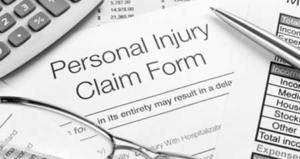As a personal injury lawyer that has handled hundreds of cases, there is one common question that is often asked by my clients: do I have a good personal injury case?
The answer can be complex and requires significant analysis of many factors.
As a personal injury lawyer devoted to helping those that are injured and obtaining maximum compensation, it is important that my clients understand how to make a strong case to recover their medical bills, lost wages, out-of-pocket expenses and pain and suffering. I have listed 10 important factors which lawyers use to determine the strength of your personal injury claim.
1. Facts of the Accident.
While many cases may be very similar, no two cases are identical. An experienced personal injury lawyer is well-aware that insurance companies use dirty tactics to deny, delay, refuse and confuse injured parties and claimants. This practice is so common, literature has been published on the dirty practice. However, facts that are not in dispute and support the injured party’s claim make it less difficult to present a claim for the full value of the injured party’s case. On the other hand, an accident involving “he said, she said” without any witnesses, traffic cameras or video, or reliable traffic crash report, make it far more difficult and expensive to determine fault. The clearer the facts, the stronger the claim.
2. Are You Injured?
Every personal injury case requires injuries. So, while you may have been lucky to walk away from the accident, you must have suffered bodily injury to make a claim for personal injury compensation. You are not entitled to compensation simply because you “could have been injured” or the other party was not paying attention. Just because the accident could have been worse, does not mean you get more compensation.
3. Medical Treatment.
All injuries must be documented by proper medical personnel, including EMS technicians on the ambulance, emergency room physicians, nurses and staff, primary care doctors, physical therapists, specialists, surgeons and any other individuals associated with your medical care. If you do not document your injuries with medical treatment, you will not have a very strong case or be entitled to much compensation. Documentation is key to any successful claim.
4. Keep Doctor Appointments.
Life is busy and we all have daily responsibilities that must be kept. However, failure to keep regularly scheduled appointments with your treating medical providers will not only impact your health and recovery, but it will deprive you of valuable compensation in your claim. A significant portion of compensation in any personal injury claim is related to your medical bills. Insurance companies will find any way to deny and
reduce payment of medical bills and an injured party’s failure to keep regular appointments provide the insurance company with ammunition to devalue your claim.
5. Lost Wages or Missed Work?
If you missed work due to your injuries and have medical support to stand behind this claim, you are entitled to 100% of your lost wages. Under Ohio law, even if using paid vacation time or sick leave, you are still entitled to 100% reimbursement for these amounts. For example, if you earn $100 each day and missed ten days of work, the insurance company must reimburse you $1,000 ($100 multiplied by ten days equals $1,000). However, assume you use ten paid vacation days so that you would not be without income, the insurance company must still reimburse you for your missed time in addition to the vacation time paid by your employer. In other words, your employer must pay you $100 each day using your paid vacation pay and the insurance company must also pay you $100 each day.
6. Pre-Existing Conditions
A common tactic used by insurance companies and their adjusters is to blame injuries, pain, discomfort, stiffness, loss of strength and range of motion, soreness and other physical abnormalities on “pre-existing conditions.” If you had a low back condition prior to a car accident and this condition was aggravated or exacerbated due to the accident, it is typical that an insurance company will attempt to deny your medical treatment as unrelated to the accident because the condition existed prior to the accident. This is, of course, not the law in Ohio and injured parties are entitled to compensation if conditions were aggravated or exacerbated by a car accident. In fact, Ohio has the Egg Shell Plaintiff rule to protect those that are more likely to be injured in accidents due to prior medical conditions. An experienced personal injury lawyer should present a claim to the insurance company that forces it to compensate the injured party for the aggravated condition.
7. Conservative vs. Invasive Medical Treatment?
It seems like common sense, but there are many misconceptions when it comes to valuing personal injury claims. Conservative medical treatment and management is an approach to treating pain and medical conditions utilizing non-surgical treatment options, such as physical therapy, medication and injections. Invasive medical treatment includes operative procedures in which skin or mucous membranes and connective tissue are incised, or an instrument through a natural body orifice. These procedures including minimally invasive dermatological procedures (e.g. biopsy, excision, or deep cryotherapy for malignant lesions), extensive multi-organ transplantation, all procedures involving surgery, angioplasty and cardiac catheterization and minimally invasive procedure involving biopsies or placement of probes or catheters. Clients that require invasive medical treatment often receive greater consideration for pain and suffering than those that receive conservative medical treatment, only. However, many times invasive medical procedures are performed after conservative medical treatment fails to relieve the physical pain or abnormality caused by the accident.
8. Future Treatment & Permanency?
It is important that the need for any future treatment and claims of residual/permanent injury be included in the potential settlement. All insurance companies require that the injured party sign a “release of claims” in exchange for compensation through a settlement. This means that all future damages and claims for compensation are disallowed. Therefore, if an injured party may need future medical treatment (physical therapy, surgery, medications, etc.), a medical opinion supporting this claim must be submitted to the insurance company before settlement. Additionally, if an injury causes a permanent condition that will cause future pain, discomfort, etc., it is important to have medical evidence from a physician so that the insurance company will properly consider the value of this portion of the claim.
For example, if an injured party suffers a knee injury which requires surgery shortly after the incident, but the orthopedic surgeon believes that a total knee replacement is likely in the future, the injured party must obtain an opinion from the orthopedic surgeon which confirms the need for a future surgery is within a reasonable degree of medical certainty and the cost of the future surgery. If you do not include both of these items, you will not receive any compensation for future medical treatment.
9. Impact on Daily Activities?
In the event an injury impacts your daily activities, even if only for a short period of time, it should be well-documented through medical records so that the insurance company will fully appreciate the inconvenience and impact of your injuries. In addition to medical records, it is helpful if there may be friends, family members or other potential witnesses that observed the impairment.
10. Emotional Injuries.
Ohio law recognizes compensation for injured parties that experience past and future mental suffering and past and future loss of enjoyment of life. While these claims for compensation have similar factors to those impacting daily activities, they can extend to how your mental health is impacted from the accident, including treatment for anxiety, depression, fear of getting back in the driver’s seat or even riding in a car. Of course, documentation of these complaints is crucial to the proper presentation of your claim and mental health care professionals should be consulted.
The personal injury layers at Cowan & Hilgeman have recovered millions in compensation for our clients. Our lawyers create plans of attack for each case specific to the client’s needs and expectations. The lawyers at Cowan & Hilgeman handle claims involving personal injury, medical malpractice, nursing home negligence and product liability. We routinely recover compensation on cases that other law firms reject. We offer free case evaluations and only get paid an attorney fee if we win your case.

